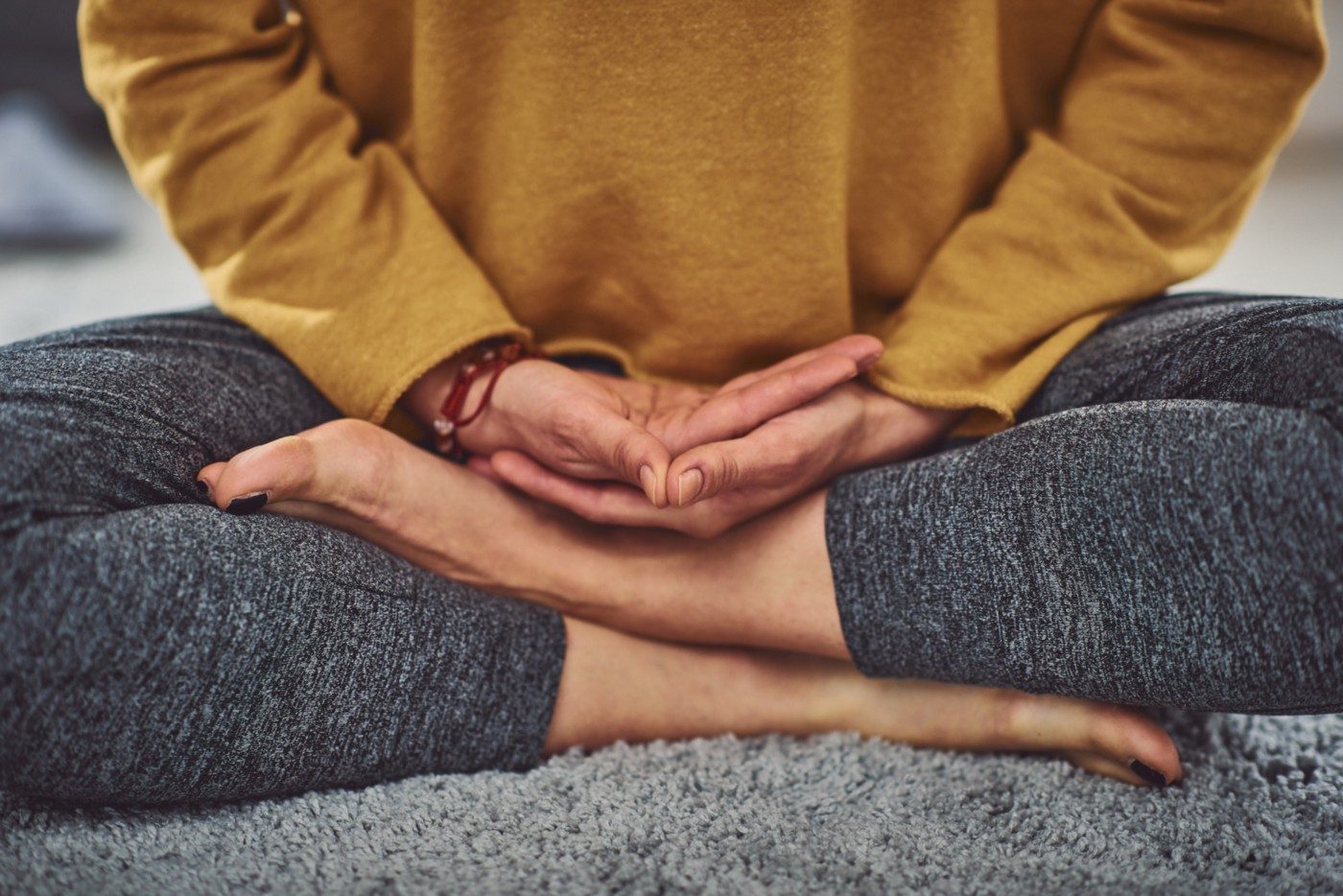By Mariam Versyani
Doha News speaks to Fatma Ben Brahim, a clinical and sport dietitian and dietary guideline trainer in Qatar, about how to keep healthy at home during the COVID-19 pandemic.
During these unusual times, many things are out of our control. But as time goes on, we’re collectively learning new ways to manage the challenges, especially when it comes to looking after our health at home.
It’s common to rely on comfort food to make us feel better and it’s normal for our cravings to get more intense in times of stress and boredom. But, from choosing the right food to preparing three meals a day, how much are we really thinking about what we eat?
Many of us want to know what we should and shouldn’t be doing to help our immunity, while making sure we don’t pile on those extra pounds.
Dietitian Fatma Ben Brahim shares some tips on how we can remain healthy during lockdown, preparing our bodies for the return to normal life.
First things first, lets focus on some Covid-19 health myths:
Myth: consuming vitamin C, garlic, ginger and warm water will boost your immune system
Vitamin C supplements have been out of stock all over Qatar for weeks, which indicates that many of us believe it will boost our immune systems. Lemon, pepper, garlic and ginger are also being widely-touted as immunity boosters. And for some reason, many people have been under the impression that drinking warm water can flush out viruses from the body.
But it is physiologically impossible to ‘increase’ your immune system overnight by eating certain foods. It takes a long-term commitment to healthy eating, healthy habits and exercise to ensure you are strong enough to fight off illness.
While these foods have a number of healthy nutrients — and water is, of course, great for hydration — there’s no evidence they can fight off COVID-19 if you don’t have an overall healthy lifestyle to go with them. The only thing garlic is known to contribute to for sure is bad breath, which might be a good thing if you want people to keep their social distance from you!
If you want to increase your chances of avoiding COVID-19, check out the World Health Organization’s well-researched, balanced advice.

So if none of the home ‘cure-alls’ work, what can we do?
Although you can’t eat your way overnight to a better immune system, there are still measures you can take to stop it weakening, and enhance your overall well-being.
Get enough sleep
Not many people know this, but sleep is one of the major factors affecting your immunity. If you don’t get enough, you may find yourself more susceptible to illness.
According to a 2012 study by Born et al, sleep is a powerful regulator of your immune functions. The World Health Organization agrees, and has highlighted the importance of adequate sleep during this pandemic — eight hours a night is about right for most people.
Manage your stress
If there is anything that will compromise and weaken your immunity the most, it is stress! This pandemic is allowing most of us to acknowledge how stressful our usual nine-to-five lifestyles were. So take this opportunity to revise your behaviour, stress patterns and stress cues.
Write down what contributes to your stress, then follow with a plan of how you will manage and respond to stressful events that occur. Engage in activities that soothe the stress and make you focus on the moment. Breathing exercises, colouring, stretching, or even a relaxing Netflix catch-up will help.
Hydrate
Drinking enough water should be high priority. Create a habit by aiming to drink a litre of water a day for a week, then gradually increase. How much water you need depends on your age and gender, but as general guidelines 2–2.5 litres a day is a good goal.
There are plenty of free apps to help you, such as Daily Water Tracker Reminder, Hydro Coach and Waterminder.
Protein
Many patients admitted to ICU or who have a critical illness are put on high protein diets to speed recovery. Recovery from injuries, infections and wounds can be slower on a low protein diet, as protein is responsible for healing.
Protein sources include animal products like fish, meat, eggs and poultry; and dairy in the form of cheese, milk and yoghurt. High-protein vegetarian options include tofu, tempeh, lentils, and beans. Make sure you have a good portion of protein at breakfast, lunch and dinner.
Fruits and vegetables
We’ve heard this from day one, but fruits and vegetables are not only rich in vitamins and minerals but they are also low in calories and high in fibre. That means they have little impact on your overall calorie intake while keeping you full for longer. Fibre is very beneficial for your gut health, which helps maintain your immunity.
Keep washed, cut cucumber, carrots and strawberries in a firm sealed container for easy snacking. Start with one of each every day for the first week and then gradually increase your intake.
Probiotics and gut health
It’s been mentioned already the importance of fibre for your gut health, as your gastrointestinal functions need to be in good shape to digest and absorb nutrients. But recent research has shown the importance of having adequate microbiota or ‘friendly bacteria’ in the gut too. Eating natural yoghurt from time to time is a great source of probiotics.
Vitamin D
During this lockdown, many of us are working from home or just avoiding the outdoors due to soaring temperatures. That means we’re not getting one of the most important vitamins; vitamin D.
A deficiency in vitamin D contributes to a weak immune system, which can affect your overall health. Symptoms of vitamin D deficiency include impaired mood, fatigue, joint pain, hair and bone loss, muscle pain and impaired wound healing, all of which are similar symptoms to a weak immune system.
Eating sources of vitamin D is often not enough. The best way to make up for the lack of vitamin D is with a supplement, checking your levels regularly with a doctor to ensure you are supplementing the correct amount.

Exercise
We all know exercise — in any and all forms — is crucial to our mental and physical health. But with lockdown, gyms and pools closed, and outdoor temperatures soaring, many of us are turning to new forms of home exercise with the help of apps and videos. Workouts can last as little as 30 minutes to an hour, but can compensate for what our bodies are supposed to do the whole day.
If that doesn’t entice you, a simple way you can get more exercise is simply by walking. For this all you need to do is stand up, take your first step and keep moving! A sedentary person would walk an average of 2,500 to 3,000 steps a day just going from the couch to the kitchen a few times. So to move more within or outside your home, you just need to add an extra 1,000 steps every day to get your weekly exercise in.
Do you have any great tips for at-home health and wellness? Share them with us today.
About Fatma
Fatma has a BSc in human nutrition and an MSc in sports in exercise nutrition and is a clinical and sports dietitian.
you can follow Fatma on Instagram @timabenbrahim_







